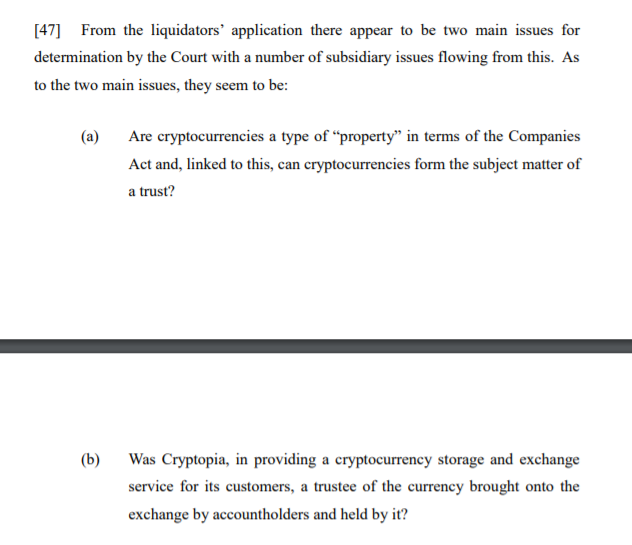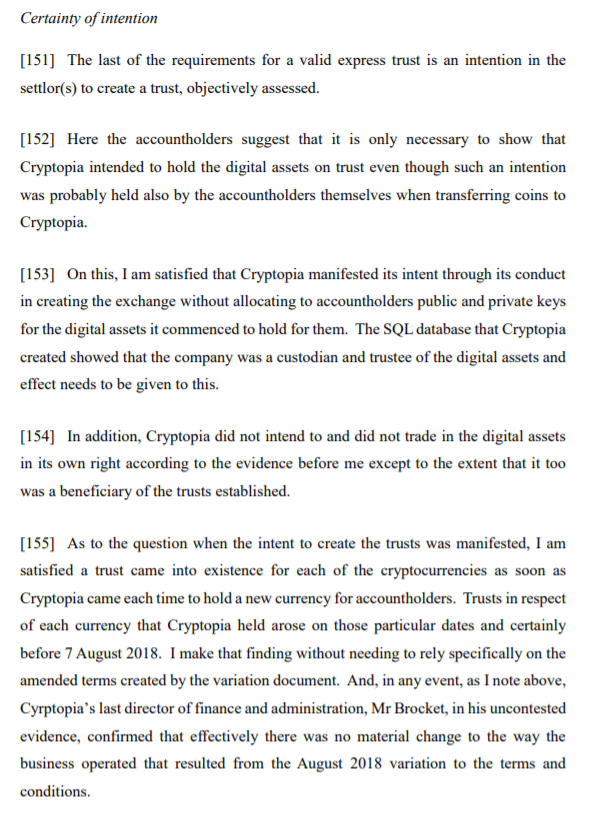Important thread for #crypto users, lenders, borrowers & intermediaries. Unsurprising result, given prior Singapore (Quoine) & UK (Robertson) authorities holding cryptocurrencies to be property; US has been there for (via twisty path) for a while now:
https://twitter.com/propelforward/status/1247536387705819143
https://twitter.com/lex_node/status/1247860162452283394
#Cryptopia like many other early #crypto trading platforms had quickly changing terms of service- i.e. it's contract with its customers. early T&C stated that the site took no ownership right over any customer's contributed #crypto. 



later amended T&C's expressly appointed #cryptopia as the agent of its users, created expressly custodial accounts, gave the platform the power to close accounts, expressly states that the platform holds assets on the customer's account. This contract matters- a lot. 







The 2 core questions: are the #cryptoassets the type of property that can be put into a trust and was #Cryptopia "in providing a #cryptocurrency storage and exchange service for its customers, a trustee of the currency brought onto the exchange by accountholders and held by it?" 

The q's themselves are important. Let's dive in: First: Are #cryptocurrencies a type of “property” in terms of the Companies Act and, linked to this, can cryptocurrencies form the subject matter of a trust? Applicable NZ law offers an exceptionally broad definition of property: 

Second, "Was #Cryptopia, in providing a cryptocurrency storage and exchange service for its customers, a trustee of the currency brought onto the exchange by accountholders and held by it?" This is a very specific question that reflects the details of the agreement
between #Cryptopia and it's users, which at some points suggested no relationship and at others, suggested custodian/agency/control. The court concluded that because the platform tracked which customer owned what assets on its own SQLDB, it was a trustee for those customers
and their assets tracked by the SQLDB; the court rejected the idea that the platform was a bailee and foundthat platform intended to be a trustee b/c it did not allow users to hold their own Private keys and did not itself trade. 







OMG! Does this mean all custodial exchanges are #trustees? NO. Deep breath. This opinion suggests under NZ law if you operate an exchange & do not have clear terms & conditions that outline exactly your relationship w/ your customers a court might decide you are a trustee.
• • •
Missing some Tweet in this thread? You can try to
force a refresh





